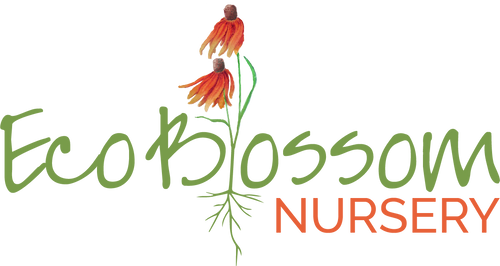Ulmus americana (American Elm)
American Elm is a large, handsome vase-shaped tree with a symmetrical crown. Fall color is yellow. It is mostly found along moist bottomland sites but can also be seen in upland areas with good soils.
American Elm has shallow roots with deep tap root that resists movement from floodwater, making this species valuable when it comes to preventing soil erosion.
American Elm is susceptible to Dutch elm disease.
Planting Instructions: If the tree is buried too deep in the container, remove excess soil to uncover root collar. Loosen exterior roots gently. If the plant is root-bound, the outer roots may be cut in several places. Place the tree in the hole so that the root collar sits a bit above the ground level since the soil will settle some. Backfill the hole using soil that was dug out. Avoid adding non-native soil if possible. Do not add any soil to the top of the root ball. Pack the loose soil in the hole with your hands to avoid creating air pockets. Add mulch making sure it is at least 3-5 inches away from the tree trunk. Water deeply.
AT A GLANCE
| Texas native | Yes |
| Water use | High |
| Sun exposure | Sun to part shade |
| Bloom time | Spring |
| Mature height |
60-80 ft |
| Mature width | 50-90 ft |
| Attracts | Butterflies, birds, mammals |
| Host plant |
Mourning Cloak, Columbia Silkmoth, Question Mark butterfly, Painted Lady butterfly, Comma butterfly. |
DISTRIBUTION MAPS
 Present in state Present in state |
 Present in county and native Present in county and native |
 Native to North America, but adventive & escaped in state Native to North America, but adventive & escaped in state |
 Not present in state Not present in state |
 Present and rare, native in county Present and rare, native in county |
 Previously present, now extinct Previously present, now extinct |
 Questionable presence (cross-hatched, regardless of color) Questionable presence (cross-hatched, regardless of color) |








